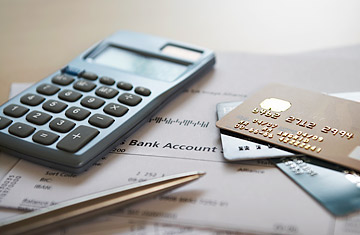
For many, this recession is creating a new math of debt management.
Strapped consumers have long prioritized paying their mortgage before their credit cards. Losing your house, after all, was seen as worse than losing the ability to spend more than what was in your bank account. But falling housing prices, loan-modification programs and restricted credit have changed the calculus of what debts get paid first for many Americans. What's more, the recent credit-card reforms might make it more attractive for more consumers to put their credit cards before their home loan.
"This is a fundamental change that has occurred in this recession," says Keith Leggett, a senior economist at the American Bankers Association (ABA). "It will have a lasting effect on who is able to get a mortgage in this country."
However, Scott Bilker, a consumer-credit expert who runs the website DebtSmart.com, says you should pause before following the pack. He says the diminished view of the housing market is causing some people to walk away from their house too quickly. Defaulting on your home loan, like defaulting on your credit cards, can hurt your credit score. Instead, he suggests splitting your available cash between your credit-card and home-loan commitments and contacting your lenders. Bilker says you can often strike a deal, especially these days. "Tell them you are thinking of contacting a bankruptcy lawyer, so they can work with you on a plan now or face not getting paid back in court," says Bilker. "These days, more lenders are listening."
In a recent study of credit trends, FICO — maker of the loan-scoring system most widely used by banks — found that among people with high credit scores, consumers were more likely to default on their mortgage than on credit-card or auto loans. In fact, borrowers with a 700-709 score, which is about the middle of FICO's range, were 25% more likely to default on their mortgage loan than on their credit-card commitments. That's a shift from just two years ago, when the opposite was true.
"We're identifying lending-industry situations in FICO Score Trends that to our knowledge have never been seen before," said Mark Greene, CEO of FICO, in the report. "Economic instability is creating unknown risk in lenders' credit portfolios as well as counter-intuitive trends in consumer behavior."
The biggest reason for the change in customers' credit behavior has to do with falling housing prices. For a long time, a house was the largest asset of most people. But according to a recent study from housing-value tracker Zillow.com, about 20% of all homeowners are now underwater on their mortgage, meaning they owe more than their house is worth. With housing prices still falling, many see little value in holding on to their home. In fact, some mortgage experts have recommended that individuals walk away from their home loan, repair their credit and start again.
Also reshuffling consumers' debt priorities is the fact that loan-modification programs are making it more likely that consumers will be able to keep their home, even after they have missed some payments. Many banks, too, have cut back on credit-card lending, lowering limits and canceling cards of borrowers who are behind on their payments. Consumers, though, have come to rely on credit cards, especially in the bad economy, to help them make everyday expenditures. So the need to protect those cards has leapfrogged ahead of the desire to stay in a house.
The new credit-card regulations, widely known as the CARD Act, could tilt the priorities of borrowers even more toward credit cards. Lenders used to be able to cancel a customer's credit card if they defaulted on their mortgage. Now, under the act, lenders are not allowed to raise the rate or revoke a card unless the cardholder is late in paying that card.
"More and more customers are relying on their credit cards to pay for gas to get to work," says the ABA's Leggett. "They won't risk losing their card."
